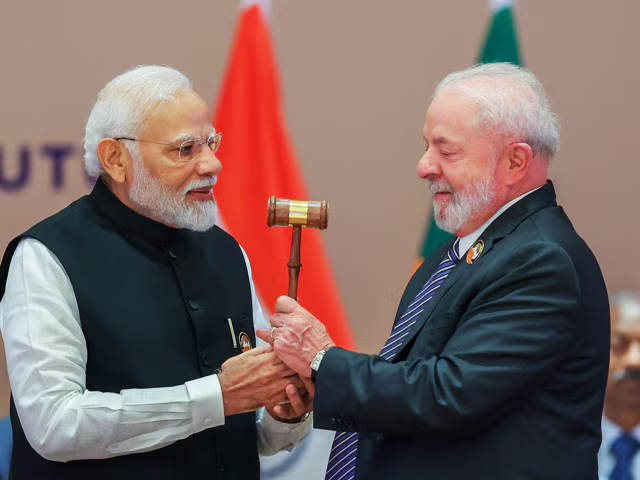Amid escalating tensions between Brazil and the United States, Brazilian President Luiz Inacio Lula da Silva has rejected an open offer from U.S. President Donald Trump to call him “anytime” to discuss mounting trade issues. Speaking at an event in Brasilia, Lula stated that Brazil would use every available avenue—including the World Trade Organization—to defend its interests after Washington imposed a steep 50 per cent tariff on Brazilian goods. The move is widely seen as a response to Brazil’s handling of former president Jair Bolsonaro, who is currently on trial over alleged coup plots following his 2022 election loss.
Calling the U.S. tariffs “the most regrettable” development in the bilateral history of the two countries, Lula said Brazil had already begun efforts to diversify its trade relations, particularly with BRICS nations. He underscored that he would reach out to leaders such as China’s Xi Jinping and India’s Prime Minister Narendra Modi, adding pointedly, “I will not call Trump because he does not want to talk… I will call Xi, I will call Modi. I won’t call Putin, because he can’t travel now. But I will call many Presidents.”
Despite the diplomatic chill, Lula noted he would extend a formal invitation to Trump for the COP30 climate summit in November, to be held in Belem, Para. “I will be kind enough to call him,” Lula said. “If he doesn’t attend, it’s because he doesn’t want to — but it won’t be for lack of education, friendliness, or democracy.”
Trump, for his part, had told reporters at the White House days earlier that Lula could call him “anytime” and expressed his fondness for the Brazilian people, while blaming Brazil’s current leadership for recent tensions. In a more conciliatory tone, Brazil’s Finance Minister Fernando Haddad described Trump’s comments as “great” and said he was sure Lula shared similar sentiments, leaving the door open for dialogue.
Nevertheless, Lula maintained that any discussion on trade tariffs must take place “on equal terms and with mutual respect,” reiterating his government’s focus on national sovereignty and fair trade. The confrontation also comes amid broader U.S. criticism of BRICS—a bloc that includes Brazil, Russia, India, China, and South Africa—which Washington accuses of undermining the U.S. dollar. Trump has even threatened an additional 10 per cent tariff on countries that openly support BRICS initiatives.

